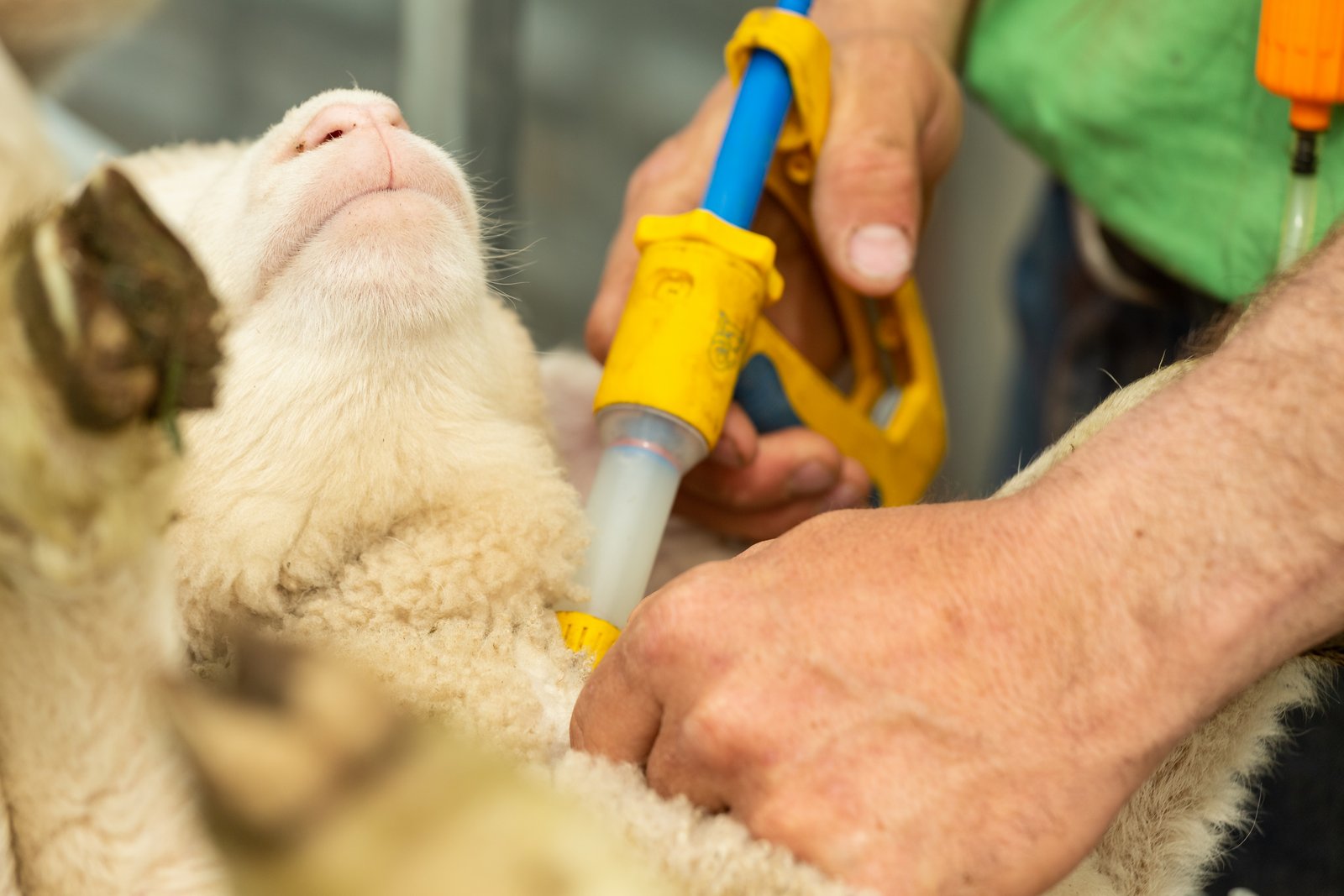Clostridial diseases - why we should vaccinate
05 Nov 2021
 PRODUCTION ADVICE - NOVEMBER 2021 - ANIMAL BIOSECURITY & WELFARE
PRODUCTION ADVICE - NOVEMBER 2021 - ANIMAL BIOSECURITY & WELFARE
By Katelyn Braine
District Veterinarian
M: 0499 339 018 | katelyn.braine@lls.nsw.gov.au
 Clostridial diseases are caused by bacteria that are widespread in the environment, particularly in the soil and faeces. The bacteria can also be found in the gastrointestinal tract of healthy livestock. Disease occurs when the bacteria enter the body through cuts, abrasions and/or ingestion, and conditions in the body allow the bacteria to multiply and/or produce toxins. While treatment is often unrewarding, vaccination is usually an effective and inexpensive way to prevent clostridial diseases occurring.
Clostridial diseases are caused by bacteria that are widespread in the environment, particularly in the soil and faeces. The bacteria can also be found in the gastrointestinal tract of healthy livestock. Disease occurs when the bacteria enter the body through cuts, abrasions and/or ingestion, and conditions in the body allow the bacteria to multiply and/or produce toxins. While treatment is often unrewarding, vaccination is usually an effective and inexpensive way to prevent clostridial diseases occurring.
Over the last month, we have seen a number of deaths in livestock due to clostridial diseases - a timely reminder that vaccination against clostridial diseases plays an important part of your livestock health program.
So, what are the main clostridial diseases you can vaccinate for?
Tetanus – Tetanus is not commonly seen these days due to widespread vaccination but can occur in unvaccinated or poorly vaccinated stock. Infection occurs through penetrating wounds such as marking wounds, failed ring castration, dehorning, foot-trimming wounds and dog bites. Common symptoms include a stiff legged gait, bloat, a locked jaw, the third eyelid coming across the eye, recumbency, muscle spasms and death.
Blackleg – Infection occurs following the ingestion of bacterial spores from contaminated feed or soil. The spores enter the bloodstream and lodge in the muscle. The spores lie dormant in the muscle without causing illness until the bacteria start to produce toxins following an injury to the area or excessive exercise. Signs of blackleg may include lameness with swelling of a muscle, loss of appetite, fever, and death within 48 hours. Young cattle between six and 18 months old that are in good condition are generally the most affected. Sheep of any age can be affected.
Black disease – Spores are ingested from the pasture and pass to the liver. Liver damage (often due to migrating liver fluke) causes toxin production and rapid death. Black disease most commonly occurs in sheep but can also occur in cattle and goats. If you have issues with liver fluke on your property, keeping your stock properly vaccinated is important in the prevention of black disease.
Malignant oedema – Malignant oedema is caused by several different types of clostridial bacteria, which contaminate wounds following shearing, castration, tail docking etc. Clinical signs appear soon after infection, with swelling and inflammation occurring at the wound site. The skin darkens and becomes gangrenous as the tissues die. Death typically occurs within 24 hours.
Pulpy kidney – Pulpy kidney is the most common clostridial disease we see and is caused by Cl. perfringens Type D. The bacteria are usually present in the gut of livestock, and in low numbers they don’t cause much of a problem. However, if there is a sudden change in diet, such as grazing lush, fast-growing pasture, or heavy grain feeding, the bacteria rapidly multiply and produce toxins that are fatal. Signs of pulpy kidney include convulsions and sudden death.
How do you vaccinate against clostridial diseases?
Stock that have never been vaccinated before (including new purchased stock and young lambs/calves) need two doses of vaccine 4-6 weeks apart. For lambs and calves, these are normally given at marking and weaning. These two initial vaccinations are then followed up with booster vaccinations.
Vaccinating your pregnant ewes and cows will provide newborn lambs and calves passive immunity against clostridial disease through antibodies found in colostrum. This immunity will diminish over time and does not count as the lamb’s/calf’s first dose. Young stock need to receive two injections, with full immunity reached two weeks after the second vaccination.
While immunities for tetanus and black disease are generally considered to be long lasting, immunity against pulpy kidney is relatively short. Boosters for pulpy kidney should be timed to occur at least two weeks prior to grazing lush, fast-growing pasture or grain feeding. In situations where these high-risk periods are continuous, you may need to provide vaccination boosters every 3-6 months.
Always follow the recommendations on the vaccine label, particularly regarding use and storage. It is especially important that the vaccine doesn’t overheat as this can stop it working correctly.
So, which vaccine should you choose?
Clostridial vaccines can be found in 3-in-1, 5-in-1, 6-in-1 or 7-in-1 and Tasvax 8-in-1 vaccine products for sheep and cattle.
5-in-1 vaccines can be used in both sheep and cattle. They cover the five main clostridial diseases listed above. Cost of vaccinating sheep with a 5-in-1 is around $0.25 per dose and $0.50 per dose for cattle.
6-in-1 vaccines are only used in sheep. They cover the five main clostridial diseases, plus cheesy gland. Cheesy gland is a bacterial infection of sheep that can be spread at shearing, dipping and with injuries. While it does not cause serious production losses on-farm, it is a major cause of economic loss in the meat industry due to trimming and condemnation of the carcass at the abattoir. For optimum control against cheesy gland, annual boosters should be given within six months prior to shearing. 6-in-1 is similarly priced to 5-in -1 (only around 7 cents per dose extra) and worth considering when vaccinating sheep flocks.
Although less commonly available, 3-in-1 vaccines provide protection against pulpy kidney, tetanus and cheesy gland in sheep.
7-in-1 vaccines are used in cattle. They cover the five main clostridial diseases plus two types of leptospirosis. Cost of vaccinating cattle with a 7-in-1 is around $2.35 per dose.
Tasvax 8-in-1 provides protection for the main clostridial diseases as well as other less common ones but does not cover cheesy gland in sheep or leptospirosis in cattle. Cost of vaccinating sheep with a Tasvax 8-in-1 is around $0.37 per dose and $0.93 per dose for cattle.
So, when deciding on which vaccine you should choose, it comes down to knowing what you want to protect against. Where there is any risk of clostridial disease on your property, vaccination is extremely cost-effective and worthwhile in preventing disease in your flock and/or herd.
For more information regarding vaccination of your stock, you can contact your District Vet by calling 03 5881 9900 (Deniliquin) o2 02 6051 2200 (Albury), or drop into a nearby Local Land Services office.